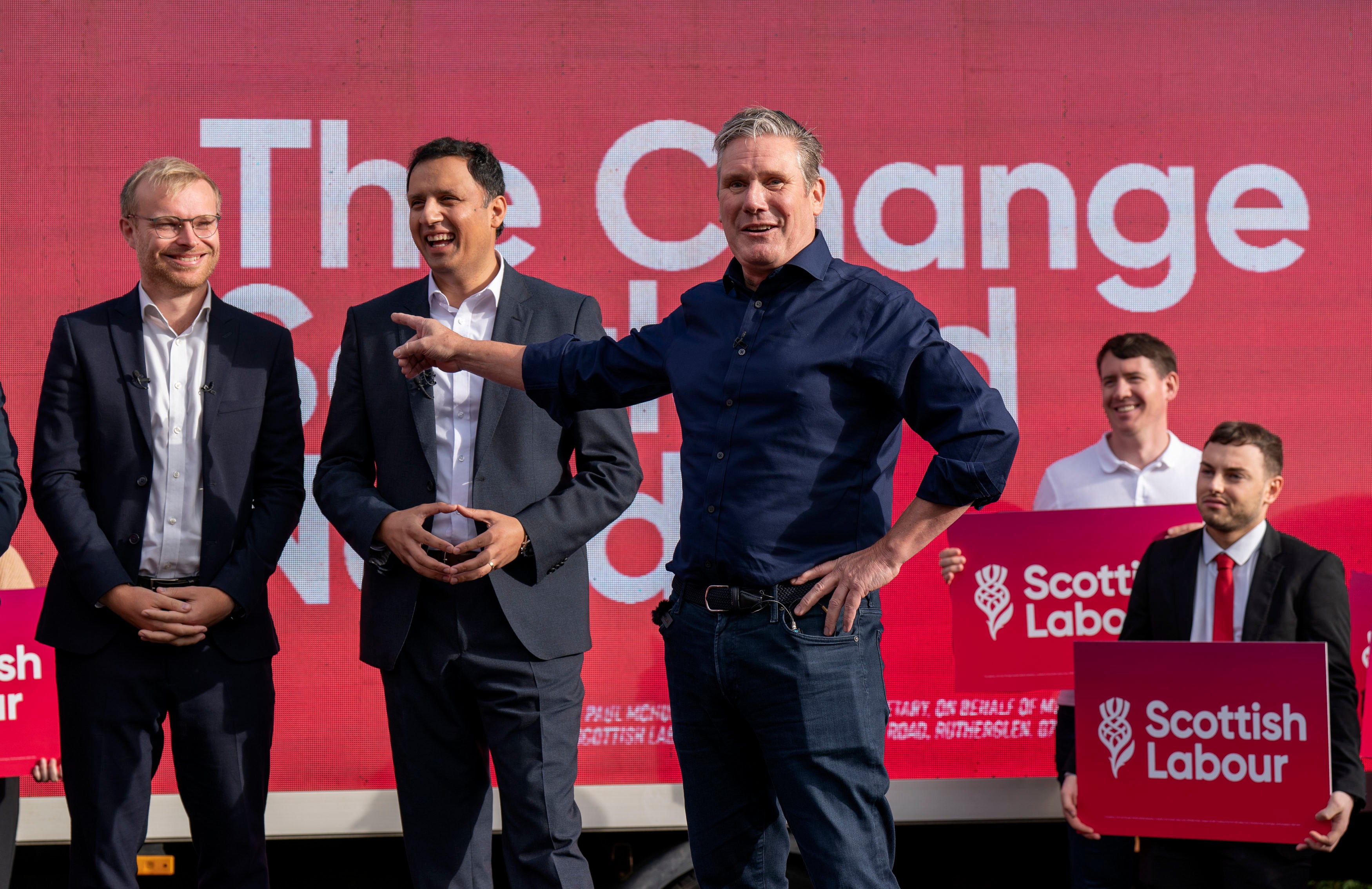Labour might have a big lead in the polls – but the Tories aren’t out of it yet
Keir Starmer will kick off conference full of confidence about next year’s general election, writes former home secretary David Blunkett. But the race is tight – and the leadership must not ignore the lessons of the past if it wants to win


After the shambolic and divided Tory Party Conference, the PR fiasco of the HS2 volte-face, and a thumping victory in the Rutherglen by-election, Labour’s hopes for their conference are naturally high.
However, we live in an era of political amnesia where each incoming Tory leader presents years of Conservative rule as entirely someone else’s fault.
John Major managed the same trick in 1992, having replaced Margaret Thatcher. Labour leader, Neil Kinnock, had spent years trying to make Labour electable after the devastating 1983 landslide win for Mrs Thatcher, but ultimately failed – despite 13 years of Tory rule.
That is why the changes that Keir Starmer and his leadership team have made in the last three-and-a-half years in preparing the Labour Party for potential victory are so remarkable. The party has transformed at an unprecedented speed and been highly effective in pushing the Tories to adopt policies against their natural instincts – not least a raft of social democratic policies in response to the pandemic.
Equally, the reaction to Liz Truss and her disastrous mini-budget demonstrated two things. Firstly, that market forces applied equally to a Conservative, as it would to a Labour government; and secondly, when push came to shove, the Tories were prepared to put in place a prime minister and chancellor who had both lost out in a membership ballot for the top job.
But as Sunak desperately distances himself from the work of his predecessors over the past 13 years, Labour cannot make the mistake of believing the Conservatives are out for the count.
When people ask me whether this is a 1992 moment (when Labour lost) or a 1997 moment (when Labour won a landslide under Tony Blair), my answer is: neither.
What Labour is faced with is more like 1964. The Conservatives had experienced a torrid time, including the Profumo Affair. This was accompanied by the “Night of the Long Knives” when a third of the cabinet was sacked. Conservative leader Harold Macmillan then became ill, and Alec Douglas-Home took over – a true, old-fashioned Tory toff who, by his own admissions, did his economic calculations with matchsticks.
Harold Wilson, the Labour leader managed to win, but only by four parliamentary seats.
That is why the prudence – some would say over-caution – of Keir Starmer and Rachel Reeves is understandable. Rocking the boat and having to deal with potential diversions is not something they are prepared to put up with. But as John Prescott, former deputy prime minister, put it, “there’s not much joy in the unity of the graveyard”.
That is why, in the 12 months ahead, there has to be a balance between iron discipline and genuine room for dialogue that seeks to help rather than hinder the goal of achieving a Labour government.
Without living in the past, we must learn the lessons which teach us that our opponents’ unpopularity is not enough.
Sunak’s U-turn on climate change is no accident. Nor is it a mere reaction to the Uxbridge and Ruislip by-election. I am absolutely convinced of the need for a sustainable future, but to achieve it we have to make changes a promise, not a punishment.
Labour must demonstrate why social democracy, and not the free market, is the answer to the policies we need to protect the planet. The same applies to the rapid acceleration in the use of artificial intelligence and robotics, the dramatic change in the world of work, in the delivery of services and coping with an ageing population.
Only by careful planning from government and implementation with business at local level can we have the faintest chance of developing the skills we will need to take on these major challenges. Even the commitment to devolving decision-making – welcome as it is – does not take account of the need to build capacity. Local government has been hollowed out, and old-fashioned communitarianism is nowhere to be seen.
The answer to divisive identity politics is to build a sense of belonging, both in terms of geographic community engagement and in new forms of online connectivity, emphasising what we hold in common rather than highlighting what divides us.
One staggering omission in the proposals to be voted on at Labour’s conference in Liverpool is the need to not only recognise the rights of those at work, but also to acknowledge Labour as the champion of the consumer.
The larger the company and the greater the profit, the less likely that you will receive face-to face service, or even an online response in a reasonable time from someone who has the first idea of how to resolve the problem you are experiencing.
Consumer protection at local level has been trashed, and restoring this advocacy would be a modest step in the right direction. My friend Roy Hattersley, who became deputy leader to Neil Kinnock, had – back in 1976 – his first cabinet post as secretary of state for consumer affairs. Perhaps it is time to re-establish a consumer champion.
Given the appalling record of the privatised water companies, is it not time to consider taking a “golden share" – which would give the government more power over decisions – before moving to a more ambitious representation of consumer and environmental interests on the boards?
Modernising and toughening up regulation, without increasing bureaucracy, must surely be overdue.
In other words, Labour needs to promote a narrative which offers not just alternative policies but a different pathway for Britain and an enabling, not a top-down, government.
Yes, it is certainly true that those of us who were fortunate enough to have our time in government should be very wary about lecturing those whose turn has come, and certainly to avoid damaging their chances of taking on the mantle. But it is equally inane to ignore the lessons of the past. One lesson I certainly learnt was not to hear the echo of your own voice.
So, as Labour gathers and reinforces its self-belief and confidence, here is a piece of unsolicited advice. Not everyone who tells you something you don’t want to hear is intent on undermining success. Not everyone who wants you to go further, be more ambitious and provide that hope, is an irresponsible wrecker who doesn’t understand the nature of power, the elephant traps of opponents, or the reality of government in practice.
When I left university at the ripe old age of 25, I thought I knew it all. Fifty years later, I know I don’t!






Join our commenting forum
Join thought-provoking conversations, follow other Independent readers and see their replies
Comments